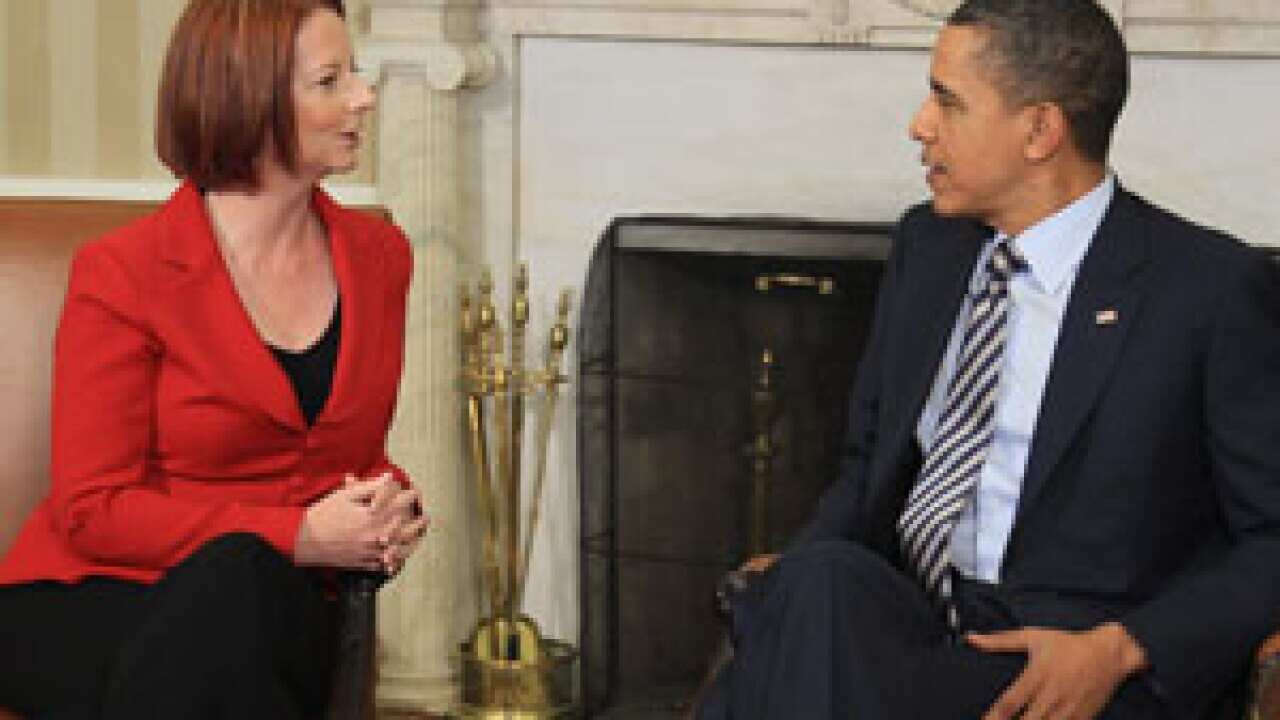10:15 AM: The President holds a bilateral meeting with Prime Minister Julia Gillard of Australia.
10:30 AM: The President holds an expanded bilateral meeting with Prime Minister Julia Gillard of Australia.
11:15 AM: The President and Prime Minister Julia Gillard of Australia deliver statements to the press.
The President and Prime Minister Gillard will discuss the strong ties between the United States and Australia, our shared political and economic interests in the Asia-Pacific region, and our work together around the world, including in Afghanistan and as members of APEC and the G20.
Fifteen-minute slots. Your time starts NOW.
In other words, Australia's PM spent about 45 minutes with the President who, in turn, spent the rest of his day meeting with "advisers", juggling his own issues, mostly the US economy, Republicans in Congress and Libya's downward spiral.
But, as Gillard showed, Obama is not the only busy world leader. On her first trip to the US as Australia's leader, the PM visited the Lincoln Memorial in Washington DC and the Vietnam Veteran's wall, which Australia will donate $3 million to help build an $85 million education centre.
Money well spent? It may help spread a message among Americans that Australia actually did participate in the Vietnam War.
Obama used his post-meeting comments to warn about possible intervention in the region and to announce the US has increased humanitarian aid to Libya's borders.
The message from the talks, at least as it was reported in the US, was about "pledging mutual cooperation in the increasingly important Asia-Pacific region and the ongoing war in Afghanistan."
"The president thanked the Australian people and military forces for what he called extraordinary sacrifices made by Australian troops in Afghanistan," said a brief report from Associated Press.
Beyond handshakes and gift exchanges, the key words from Gillard's Obama meeting were "Asia-Pacific" region.
The Wall Street Journal has astutely pointed out that: "China complicates Australia's international policy. China's factories depend on the coal and iron ore from Australia's mines, and that demand is fueling the Pacific nation's growth.
"At the same time, China has ramped up military spending and become more assertive in the Asia-Pacific region, where it claims jurisdiction over large parts of the South China Sea."
Gillard is scheduled to meet Admiral Robert Willard, Commander of U.S. Pacific Command, in Hawaii on her return to Australia.
As Willard told 180 Degrees last month: "I regard the Australian armed force as being essential to the region and stabilising within the region."
The better news?
"I received a New Year's card from my Chinese counterpart," Willard added during the same briefing, to some laughter.
"And I was very pleased to receive it."
So while Libya, US trade, Afghanistan, and climate change, are front and centre, China is a real talking point and one where Australia has a delicate role to play.
Oh, and memo to Kim Beazley, Australia's ambassador to the US: when you meet with the Prime Minister, please wear a tie. Even if it is a Sunday.
Share

